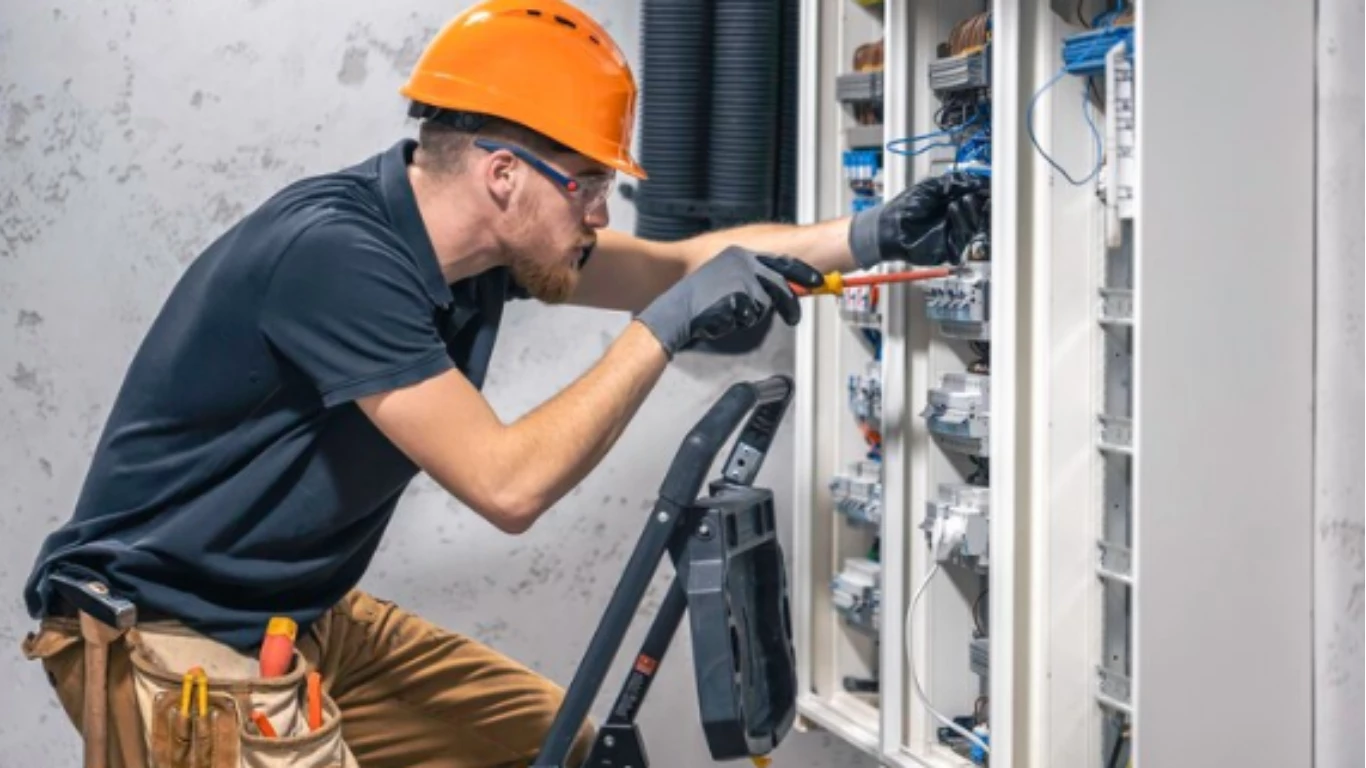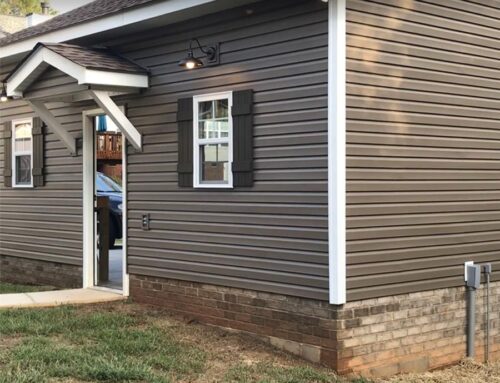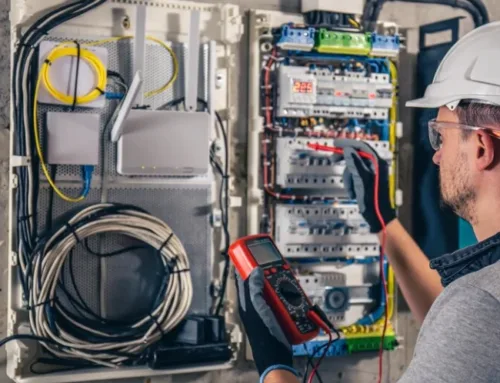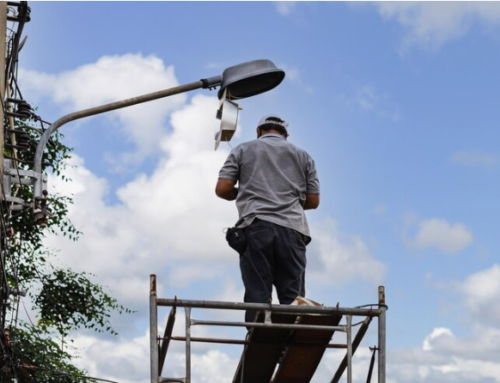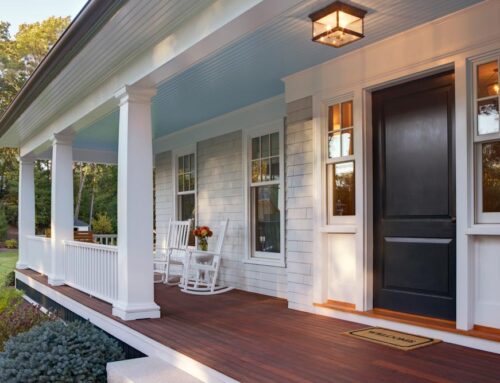When the temperature drops and winter settles in, most people think about cozy sweaters, hot cocoa, and holiday lights. But while you’re bundling up indoors and enjoying the season, your home’s electrical system is working overtime to keep things warm and bright.
Winter brings its own set of challenges for electrical safety, and without the right precautions, it can also bring potential hazards. Electrical power outages and fire risks are more common than we might realize during the colder months. Understanding the relationship between winter weather and electrical safety is crucial for every homeowner.
How Can Winter Weather Cause Electrical Power Outages?
Winter is notorious for extreme weather conditions, and those conditions can wreak havoc on your electrical system. From ice storms to heavy snow, cold weather poses a number of threats that can lead to power outages.
1. Fallen Trees and Branches
Snow and ice build-up on trees and power lines can cause branches to break off and fall, often onto electrical lines. These downed lines can result in power outages, especially in areas with older or poorly maintained power infrastructure. Even a small branch can be enough to interrupt the flow of electricity.
2. Ice and Snow Accumulation on Power Lines
Ice can build up on power lines and transformers, making them heavier and more prone to breaking or sagging. If enough ice accumulates, it can cause lines to snap, leading to local or widespread power failures. This is particularly true in areas where ice storms are common.
3. Blizzards and High Winds
Blizzards and strong winds often go hand in hand with heavy snow, and when combined, they can cause serious disruptions. High winds can knock down trees and utility poles, while snowstorms can obstruct access to electrical equipment, delaying repairs and extending power outages.
4. Freezing Temperatures and Equipment Failures
Freezing temperatures can also affect the functionality of electrical equipment, from circuit breakers to wiring. Cold weather can cause metal parts to contract, potentially causing short circuits or equipment malfunctions. Over time, this wear and tear can add up, resulting in unexpected electrical failures.
To prevent power outages, it’s a good idea to be proactive:
- Keep trees trimmed and away from power lines.
- Regularly check the condition of your electrical system.
- Consider investing in a generator as a backup source of power for critical systems during an outage.
What are the Most Common Electrical Fire Hazards During Winter?
While electrical outages are a concern, winter also brings a heightened risk of electrical fires, which can quickly escalate in cold conditions. Many common household items are used more frequently in winter, and improper use can lead to disaster.
1. Space Heaters
Space heaters are one of the most common causes of winter electrical fires. When improperly used, they can easily overheat or even catch fire. If a space heater is placed too close to furniture, blankets, or curtains, it can spark a blaze. Additionally, old or damaged heaters with frayed cords are more likely to fail.
Safety Tips:
- Never leave a space heater unattended.
- Keep flammable materials at least three feet away from heaters.
- Ensure your space heater is plugged directly into a wall outlet (not an extension cord or power strip).
2. Holiday Lights
Decorative lighting is a big part of the winter season, but it can be a fire hazard if not properly maintained. Overloaded circuits, damaged cords, or faulty bulbs can cause sparks and lead to fires.
Safety Tips:
- Always inspect your lights for frayed wires or damaged bulbs before use.
- Avoid overloading electrical outlets by plugging in too many lights at once.
- Turn off all holiday lights when you go to bed or leave the house.
3. Faulty Wiring
In older homes, the wiring may not be able to handle the increased load that winter appliances require. For example, running high-power appliances like space heaters, electric blankets, or multiple devices at once can overtax the electrical system, leading to overheating and fires.
Safety Tips:
- Have your home’s wiring inspected to ensure it’s up to code.
- Replace or upgrade older wiring that might not meet modern safety standards.
- Never use damaged or exposed wires.
4. Overloaded Power Strips
Power strips are often used to plug in multiple items, but during winter, overloading them can create a serious fire risk. Plugging in too many high-power devices, such as space heaters, to a single power strip can easily cause overheating and fires.
Safety Tips:
- Avoid using power strips for high-power appliances like heaters or kitchen appliances.
- Make sure the power strip has a built-in surge protector.
- Don’t daisy-chain multiple power strips together.
Why is It Important to Inspect Electrical Systems Before Winter?
Many homeowners don’t think about their electrical systems until something goes wrong, but inspecting your system before winter can save you from major headaches (and potential disasters) down the road. Here’s why an electrical inspection is essential as the seasons change:
1. Preventing Wear and Tear
Winter puts a strain on your electrical system. From the heating system running nonstop to the lights staying on longer, your electrical system is working overtime. Regular inspections before the cold hits can identify any potential issues like worn-out wiring, faulty breakers, or old appliances that may need to be replaced.
A professional inspection ensures that everything is in top shape to handle the winter load, reducing the chances of unexpected failures.
2. Upgrading Safety Features
As your home ages, so does its electrical system. Older homes may have outdated wiring, circuit breakers, or electrical panels that aren’t equipped to handle modern demands. An inspection can help you upgrade safety features, ensuring that your system complies with current codes and is better protected against electrical fires.
3. Addressing Hidden Problems Early
Electrical issues often go unnoticed until they become big problems. Faulty wiring, outlets, or even loose connections may not show immediate signs of failure, but when combined with winter’s added stress, they can lead to dangerous situations. Pre-season inspections catch these issues before they escalate, giving you peace of mind when you need it most.
How Does Cold Weather Affect Home Electrical Safety?
Cold weather doesn’t just affect the outside of your home — it also has a significant impact on the electrical systems inside. Understanding how cold weather affects your electrical safety can help prevent problems before they arise.
1. Increased Load on the System
During winter, your heating system, lighting, and additional appliances are in use more often, which increases the overall demand on your electrical system. This can lead to overloaded circuits if your wiring or breakers are outdated or insufficient.
2. Contracting and Expanding of Wiring
Cold weather causes materials to contract, and this includes the wiring in your home. As wiring contracts in low temperatures, it can cause connections to become loose, increasing the risk of short circuits or electrical fires. An inspection will ensure that wiring is secure and properly insulated to handle the cold.
3. Frozen Pipes and Electrical Connections
In freezing temperatures, pipes can burst, causing water damage. If these pipes run near electrical connections, the combination of water and electricity can be deadly. Keeping your electrical connections dry and properly insulated is essential for both safety and functionality.
Stay Safe This Winter with Starnes Electric LLC
Winter brings beautiful snowfalls, cozy evenings by the fire, and the holiday spirit — but it also brings its own set of electrical hazards. Ensuring your home is ready to handle the colder months starts with proactive electrical safety checks.
At Starnes Electric LLC, we specialize in providing comprehensive electrical inspections and repairs that prepare your home for winter. Our experts will check your wiring, outlets, and circuit breakers to ensure everything is in perfect working order, keeping your home safe from potential electrical hazards.
Don’t wait for an emergency to strike. Contact Starnes Electric LLC today for a winter electrical inspection and keep your home safe, warm, and worry-free this season!

